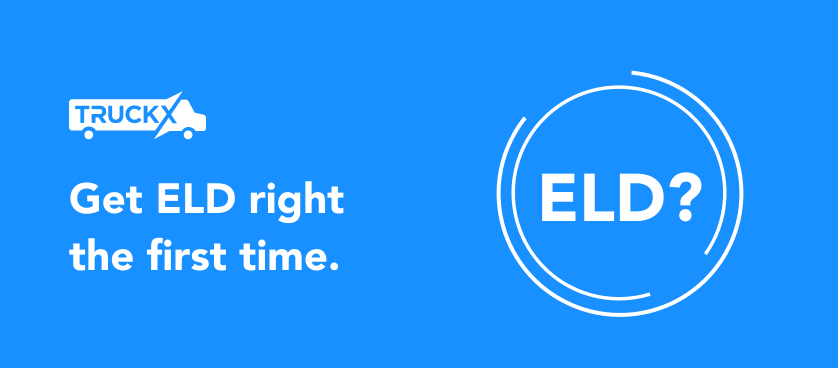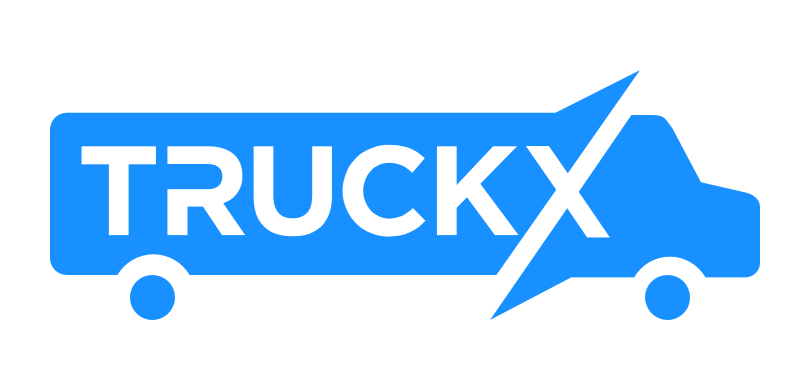
Now that truckers have started using ELDs to comply with the FMCSA mandate, it’s essential for them to have a complete understanding of the device to protect themselves and ensure 100% compliance.
Agreed, it’s a new technology. And just like any new technology, it can be a tad difficult to get familiar with all the operations at once. If you’re still curious about all the ins and outs of ELD that do take some time out and go through this blog. Here we’ve answered the 7 most important queries about ELDs so that you can improve your knowledge and understand the device better.
So, let’s hit the road right away!
1. What is the main function of an ELD?
An ELD or Electronic Logging Device replaces the paper logbook or AOBRD in a commercial vehicle. It is a more advanced technology to record and store Hours of Service (HOS) and other data such as the vehicle’s location, no. of miles driven, engine hours, and movement of the vehicle electronically. The main function of an ELD, however, is to log the Hours of Service of truckers to ensure FMCSA compliance.
2. Who should install an ELD?
The ELDs should be installed by fleet owners and truckers in all Commercial Motor Vehicles (CMVs). You should find the truck’s diagnostic port and attach the device to the connector so that it synchronizes with the engine and records HOS data efficiently.
3. Why should you install an ELD?
This question can be answered in two parts.
In the first section, you should know why you must install an ELD in your vehicle. The ELD Mandate by FMCSA necessitates all drivers and fleet owners to have ELDs installed in their vehicles for 100% compliance. Any violation can result in fines that range from $1,000 to $10,000 apart from massive heartburn and stress.
Now, coming to the second section, you should know the benefits of installing an ELD in your vehicle. By more accurately recording the Hours of Service, compliance is thought to make roads safer by preventing truckers from driving while tired or worn out. Further, the drivers won’t have to waste time managing scores of data on the paper logs during a road inspection. Data from ELDs can be electronically transferred to the enforcement officers easily. It’ll also track the location of the vehicle and send snapshots of the same to the concerned team. The data the device collects, beyond the compliance needs, can be useful for optimizing fleet operations, routes, driving habits, and staffing plans.
4. Who is exempted from using ELD?
Yes, you heard that right. Some vehicles have been exempted from installing ELDs. These are as follows:
- Commercial motor vehicles that were manufactured before 2000
- Driveaway – towaway drivers, who transfer a motor vehicle as a commodity
- Drivers, who keep RODS (Record of Duty Status) for 8 days or less in a month
- Short-haul commercial drivers, who drive within a 100 air-mile radius and serve not more than 12 hours daily, in which they drive only for 11 hours
- Short-haul non-commercial drivers, who drive within a 150 air-mile radius, return to the reporting location at the end of their duty and ensure that they don’t drive before 14 hours of coming on duty on 5 days a week and not before 16 hours on the remaining 2 days
- Some farm vehicles transporting machinery, livestock and other supplies
5. What are the costs of ELDs including installation?
The ELDs used to cost $2,500 some 20 years ago when they were first introduced. However, the advanced FMCSA-approved ELDs cost far less. Device solution providers are looking to make an impact and currently, a healthy competition prevails among them. This gives consumers the benefit of lower upfront costs. Of course, an analysis of the costs will have to factor in not just the cost of the device and the subscription. There’s the cost of installation -easy-to-install devices save costs. There’s the cost of training to the truckers -simple, app-like interfaces help lower the time and effort on this front. Then there is the cost of ongoing support and maintenance to consider too.
6. How to choose an ELD for your vehicle?
The FMCSA has approved a list of ELDs and their manufacturers to ensure maximum efficiency and 100% compliance. You can check out the list of affordable ELDs for owners and operators here before investing in a suitable device for your vehicle.
7. What are some common misconceptions about ELDs?
A lot of myths exist around ELDs and their functions. We’ve busted a few of them below:
- ELDs track the personal data of drivers – No, they don’t! As the electronic logging device is connected to the vehicle’s engine, it’s only concerned with the engine’s movement. It is true that some ELD solution providers are guilty of collating this information and sharing it with brokers and aggregators. This has been found to impact the competitiveness of drivers by giving customers seeking truckers at spot rates a potentially unfair advantage. It’s best to pick an ELD solution provider who has committed to never share this data with anyone.
- The HOS data is directly sent to the enforcement officers – The data remains with the trucking company unless initiated by the fleet managers or the drivers to be sent to the enforcement officers during a road inspection, an FMCSA audit or a traffic infraction.
- ELDs can stop the vehicles – ELDs can’t shut vehicles down. They can only track their movement and record the data.
- The Government is watching 24*7 – Only the trucking companies are authorized to track the location of the vehicles with the help of ELD data. There’s no trucking version of Big Brother.
Did this information reduce your fears to some extent?
Now that you are ELD-confident, get one ASAP. Look for a reliable, FMCSA-approved manufacturer to serve you. After all, compliance is critical, right?
